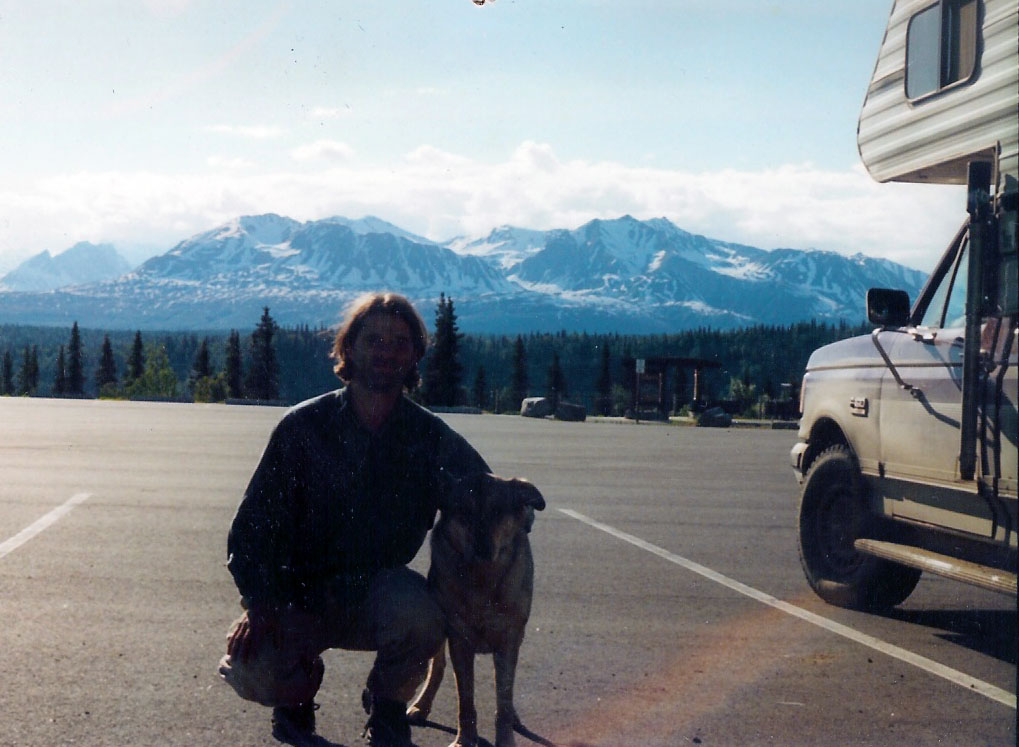In Dubious Camper or Wearing Hubris Like a Medal (Part 1)
(A short story I wrote in 2002.)
A dilettantism in nature is barren and unworthy
Ralph Waldo Emerson, Nature
Assigned for College Prep English, you read Travels with Charley in a suburban high school and a notion must have conceived then, gestated over two decades, and now begins its birth here in your unpublished adulthood on the Oregon Coast.
To John Steinbeck, the nation’s people and landscape were his subject and inspiration. Toward the end of his career, he wanted to reacquaint himself with his stock and trade so he took to the road to ask great questions of Americans. Having the luxury of no job to report to, he crossed the country leisurely in the era before corporations branded homogeneity on our culture. His loyal poodle Charley rode shotgun and their means of transportation was a crude but funky custom-made truck camper, a novelty at the time that only a famous author could afford. He named the rig Rocinante, after the nag in Don Quixote.
In Travels with Charley, which the rest of your class hated, Steinbeck wrote, “An American writer has to know his land and the people if he is going to write about America,” and that’s exactly what he did in the era before Interstate Highway System murdered automobile touring in this country and metastasized urban degeneracy into rural America.
The book, the camper, the dog, the wanderlust, Steinbeck’s credo—they all must have stoked some atavistic embers, heated a branding iron red and left a smoking black mark on your youth.
Unfortunately, this mark was not painful enough to set you directly on the course to becoming a writer. Other seductions prevailed, namely, the comfortable dictatorship of being a public high school teacher which brainwashes you into believing two things: 1) you are always right; 2) preparing a cutting edge lesson plan is the zenith of liberal intellectual risk-taking.
Now, almost two decades later, after 17 subjects, seven schools, two continents, and ten years in climate-controlled classrooms, you actually achieved what Philip Roth wrote about teachers, “Perpetually hovering at the edge of depletion.” Now a non-MFA, non-trust fund, non-grant, attempt to create the professional writing life is unfolding. You have ideas, you have experiences, you know they are fresh, you want to write, you think you can write, and maybe you are on the brink.
So you quit teaching at this final gig on the Oregon Coast but never told your colleagues, burned all your curriculum files, or cashed in the pension to dynamite the last bridge back to the classroom. It will remain standing should you fail. It always remains standing for a certain kind of teacher who wants out of the profession but can’t make it.
The nation’s people and landscape are your subject and inspiration too. You have a loyal dog, Ray, named after Raymond Carver who sometimes wrote in his car, and couldn’t hack it as a high school English teacher. And you now also have various luxuries of time and temporary liquidity since you are unemployed, childless, repaid the college loan, saved cash, and the wife took on a new and particularly grinding social service job to help finance your transformation.
So, a plan that gestated for one score emerges from the birth canal: you will buy a camper, explore and document the Pacific Northwest’s special places and freaks and become a writer editors commission to investigate and declare authentically for art and the record—The State of the Region—or the entire country for that matter. You will serve as writer in residence in a camper and this gimmick will put you on the literary NPR map. After you hit the road, the stories will flow like the Columbia River used to. And naturally, you will be so utterly cool in this role that you will copy Barry Lopez and pull over at the sight of roadkill and drag their bodies off the killing ground to provide them a sliver of dignity in the face of appalling human impatience and destruction wrought by the internal combustion engine.
Of course you could just buy a van, but Steinbeck would never drive a van, and your wife has filled your head with wonderful stories of her cozy sleep-overs in her Grandfather’s homemade camper, and his gritty trips to Baja and Hells Canyon. It must be a camper and it must sit upon a big truck.

